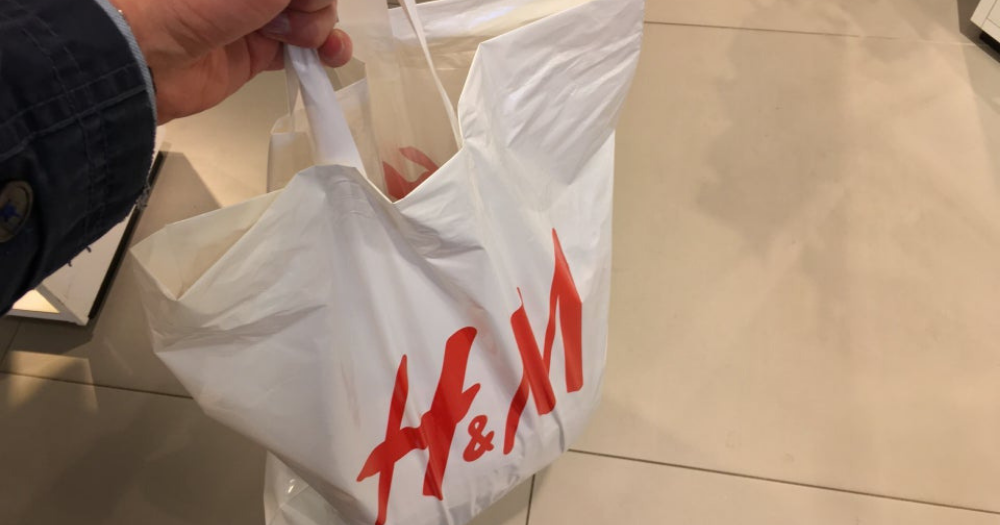Follow us on Telegram for the latest updates: https://t.me/mothershipsg
As we continue to struggle with our relationship with single-use plastics, there's hope on the horizon.
Over 300,000 single-use bags saved per month by retailers
An industry initiative to reduce the excessive use of single-use plastics led by World Wide Fund for Nature (WWF) Singapore saw a decrease in single-use bags with more than 300,000 saved on a monthly basis.
The Plastic ACTion (PACT) Retail Bag Charge initiative saw the following eight companies not offering a bag by default and implementing a charge for single-use bags:
- Decathlon
- H&M
- LEGO® Certified Stores (Bricks World)
- SaladStop!
- The Body Shop
- Uniqlo
- Watsons
- Wing Tai Retail
Stefanie Beitien, Head of Market Transformation at WWF-Singapore, said they are "excited" to see major retailers coming onboard to reduce single-use plastic bags. She added:
"The introduction of the bag charge aims to drive momentum in influencing consumers' behaviour to bring their own reusable bags and increase environmental consciousness.
We look forward to inspiring more companies to adopt this initiative as a first step to look at packaging and plastics with a more holistic view to create a systemic change for the future.”
60% of customers chose to BYOB after bag charge implemented
According to WWF, 60 per cent of consumers who shopped at the above-mentioned retail outlets refused single-use bags and chose Bring-Your-Own-Bag (BYOB) after the single-use bag charge was put in place.
Executive Director of Wing Tai Retail Helen Khoo said the bag charge has "proven to be effective in discouraging the use of single-use bags which is a crucial step towards reducing pollution".
More could be done to reduce single-use plastics in S'pore: WWF
According to WWF, consumers in Singapore are becoming more aware of the plastics problem and the need to reduce Singapore’s single-use bag consumption.
A citizens workgroup has also recently called for a bag charge at supermarket retailers, as one of their recommendations in the NEA Citizens’ Workgroup for Reducing Excessive Consumption of Disposables.
The single-use bag charge also paves the way towards a circular economy and contributes towards Singapore’s Zero Waste Masterplan, said WWF.
Money from plastic bag charge goes to charitable causes
At the same time, money collected from the plastic bag charge can be donated by retailers to charity organisations of their choice to support further conservation efforts and plastic-related research projects.
One successful case study is Decathlon, the world's largest sporting goods retailer, which has completely removed all single use plastic bags across their stores.
In addition, they have also implemented an option for customers to purchase their reusable recycled polyester bags that are useful for future trips.
Decathlon's Blue Bags Project Leader Leona Xu said:
“We have seen a significant increase in willingness-to-pay from consumers for eco-friendly products and are glad to share that consumers are more conscious of the environment.”
Global data has shown that 127 countries in the world have already ramped up various forms of legislation to regulate plastic bags.
For example, in Thailand, a plastic bag ban came into effect at the start of last year, and this saw citizens finding innovative ways to shop without needing plastic:
Related stories:
Top photo from Hannes/Foursquare
If you like what you read, follow us on Facebook, Instagram, Twitter and Telegram to get the latest updates.

